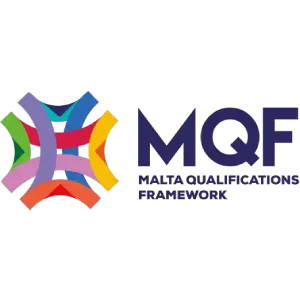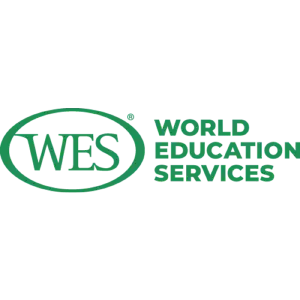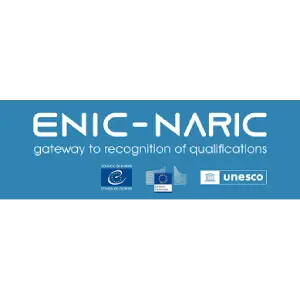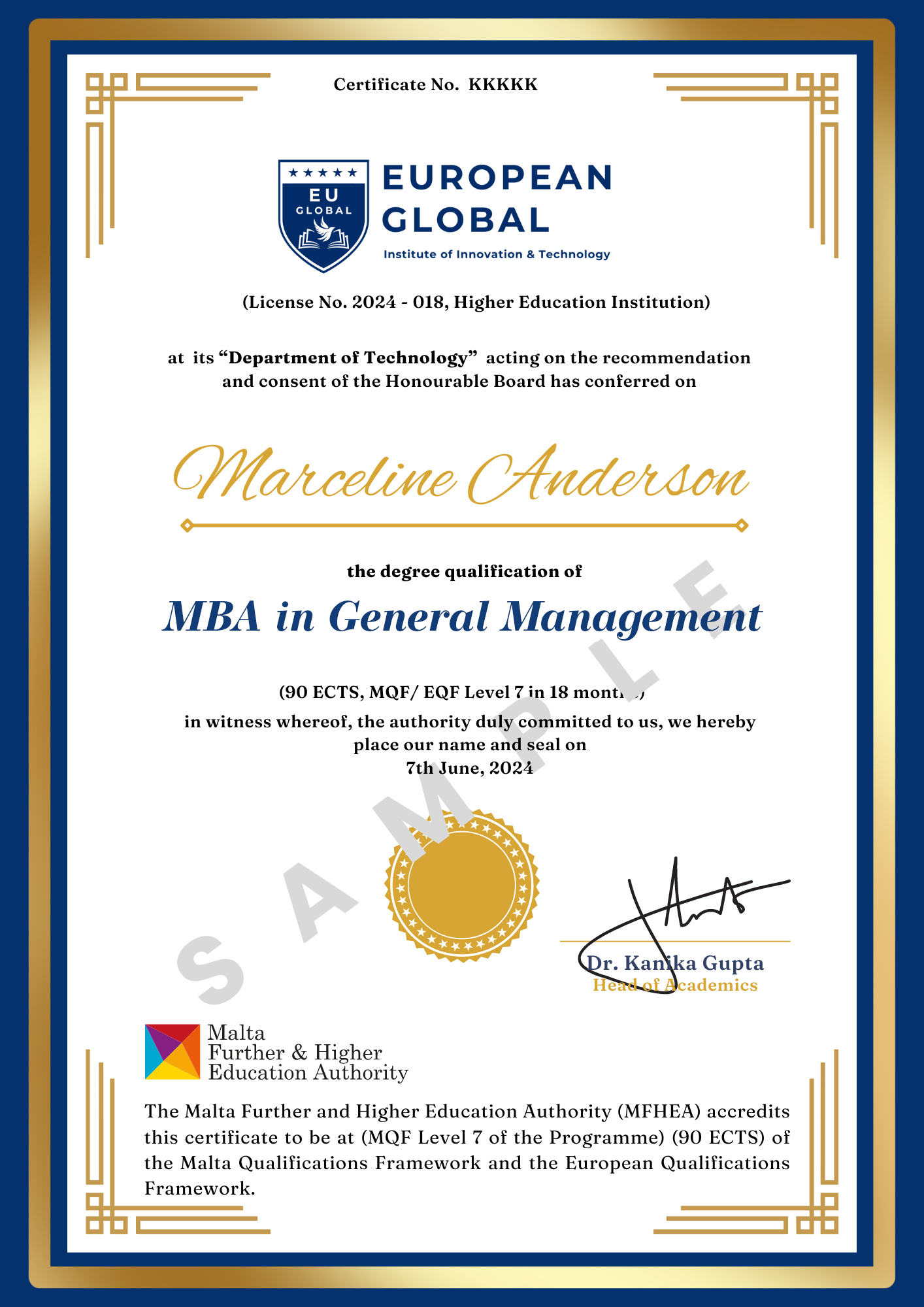Master of Business Administration (MBA) is a 90 ECTS, European Qualifications Framework (EQF) full-degree Level 7 programme. This programme is fully accredited by the Council for Higher Education Development, USA, and has been approved by the Malta Further & Higher Education Authority (MFHEA).
There are 10 areas Pathways / areas of specialization available for EU Global MBA listed as follows:
- Pathway 1: MBA in Tourism and Hospitality Management
- Pathway 2: MBA in Strategic Human Resource Management
- Pathway 3: MBA in Environment, Energy and Sustainability Management
- Pathway 4: MBA in Strategic Digital Marketing
- Pathway 5: MBA in Accounting and Finance
- Pathway 6: MBA in Operations and Supply Chain Management
- Pathway 7: MBA in Technology Leadership
- Pathway 8: MBA in Health Economics and Healthcare Management
- Pathway 9: MBA in International Business
- Pathway 10: MBA in General Management
-

90 ECTS Credits
-

European Qualifications Framework
-

MQF Accredited
-

WES Recognised
-

Globally Recognised
-

CHED Accredited
-

APHEI USA Member






 Personality Test
Personality Test 



